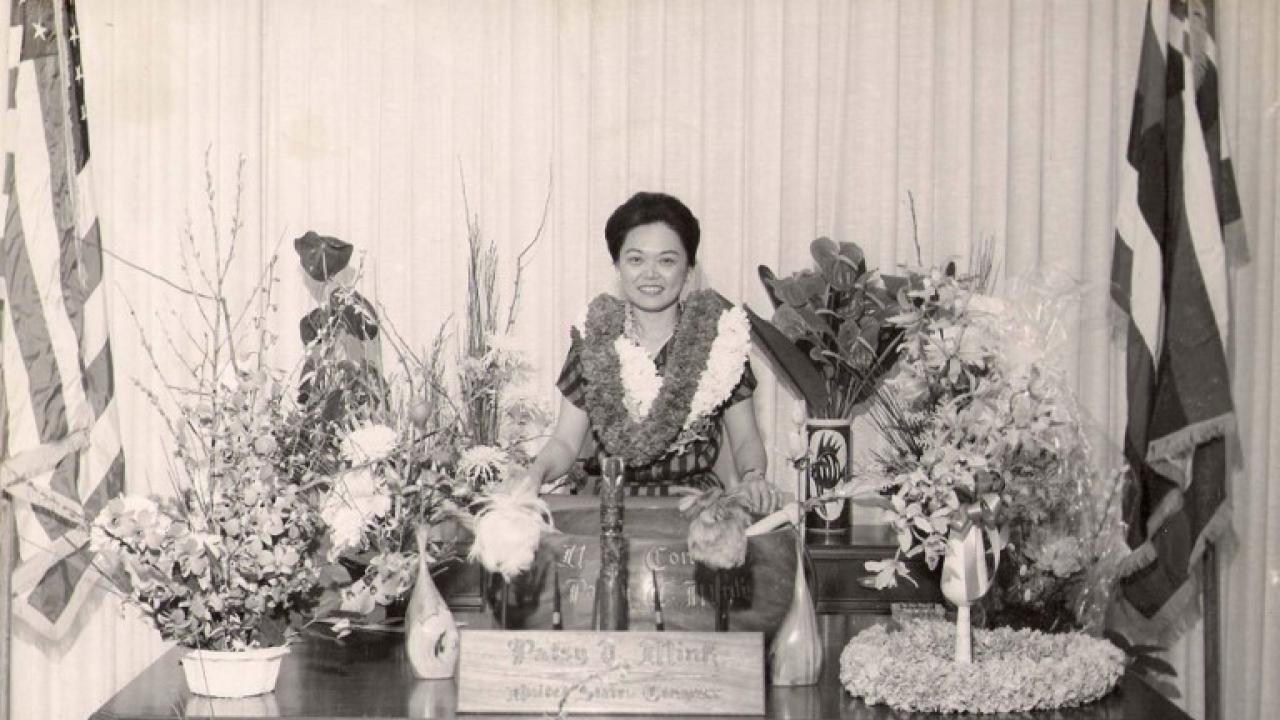
Rethinking the History of Women's Suffrage
This year marks the 100th anniversary of the ratification of the Nineteenth Amendment, an event often celebrated for giving women in the United States the right to vote. In reality, many women subject to U.S. jurisdiction remained disenfranchised long after the amendment’s passage, including Black women and women in U.S. colonies. What does it mean, then, to look at the history of women’s suffrage through the lens of U.S. empire?
A group of historians from across the UC system are collaborating to explore this question. At the recent virtual event Women, Voting, and U.S. Empire, the UC Davis Humanities Institute welcomed members of the UC Consortium for the Study of Women’s, Gender, and Sexuality History in the Americas (UC-WGSHA): Faith Bennett (doctoral student in History at UC Davis), Katherine Marino (associate professor of History at UCLA), Lisa Materson (associate professor of History at UC Davis), and Judy Tzu-Chun Wu (professor of Asian American Studies and director of the Humanities Center at UC Irvine). The event was the first in the DHI’s three-part fall Conversation series, Democracy in Crisis, Democracy in Movement(s).
Within the Regime, Against the Regime
Marino, Materson, and Wu each discussed research on activists who are often left out of the history of women’s suffrage, showing how these stories can broaden our understanding of gendered citizenship in the Americas. Materson spoke about women’s participation in the Puerto Rican Independence Party (PIP), whose strategy was to work “within the regime, against the regime” (the phrase also provided the title for Materson’s most recent book project). The PIP, Materson argued, is an example of how “women in a U.S. colony used their very limited voting rights as a form of trying to decolonize.”
Marino, whose work focuses on inter-American feminism, argued that Latin American feminists were central to ensuring the inclusion of women’s rights in the UN Charter and helped shape the idea of international human rights after World War II. “In the face of an Anglo-American imperialist feminism, Latin American feminists really took the lead,” she maintained.
Wu discussed her work on Patsy Takemoto Mink, the U.S. Representative from Hawaii who was the first woman of color to be elected to Congress in 1965 and the first Asian-American woman to run for president in 1972. Hawaii’s location in the Pacific Islands and its status as a former territory were central to how Mink approached politics: “She really saw herself politically, geologically, ecologically connected to other Pacific Islands,” Wu explained. Mink spoke out early against nuclear testing in the Pacific and pushed for representation for U.S. territories at the 1977 National Women’s Conference.
Digitizing Women’s History
The consortium has been working together on the Suffrage Syllabus, a multimedia resource that will be available online through Alexander Street Press starting in November. Researchers have organized the syllabus chronologically into four modules: Women, the Modern Nation State, and the Age of Revolutions; Women’s Voting in the U.S. Empire; Women’s Grassroots Activism Against U.S. Empire; and U.S. Empire, Gender, and the Presidency. The syllabus will include digital resources created by the project’s graduate student researchers using ArcGIS StoryMaps and TimelineJS (all UC graduate students have full access to these storytelling tools).
The Suffrage Syllabus is funded by a grant from the UC Humanities Research Institute, and Materson pointed out that support from the UC system has been important not only to this project but to the field overall. Many important scholars in the field have been connected to the UC in some way. “The contributions of the UC system to women’s and gender history are deep and profound,” Materson said.
Vote!
Asked what lessons the history of women’s electoral politics can offer for the current crisis in democracy, the panelists agreed about the crucial importance of staying politically engaged.
Wu allowed that when Patsy Mink was elected in the similarly urgent 1960s, many activists believed that electoral politics had little to do with creating social change. Wu cited one Third World Liberationist who scoffed at Mink in an interview, saying “she actually believes that electoral politics makes a difference.”
But in our current moment, Wu went on, “Electoral politics actually will make a difference. It won’t completely change or transform the systems of inequality, but it’s so apparent that we need to have responsible leadership in our government...We need a social movement that will hold our political officials accountable, and we need to think about the vote as one instrument among many to create social transformation.”
Watch the video of Women, Voting, and U.S. Empire on the DHI YouTube page.
